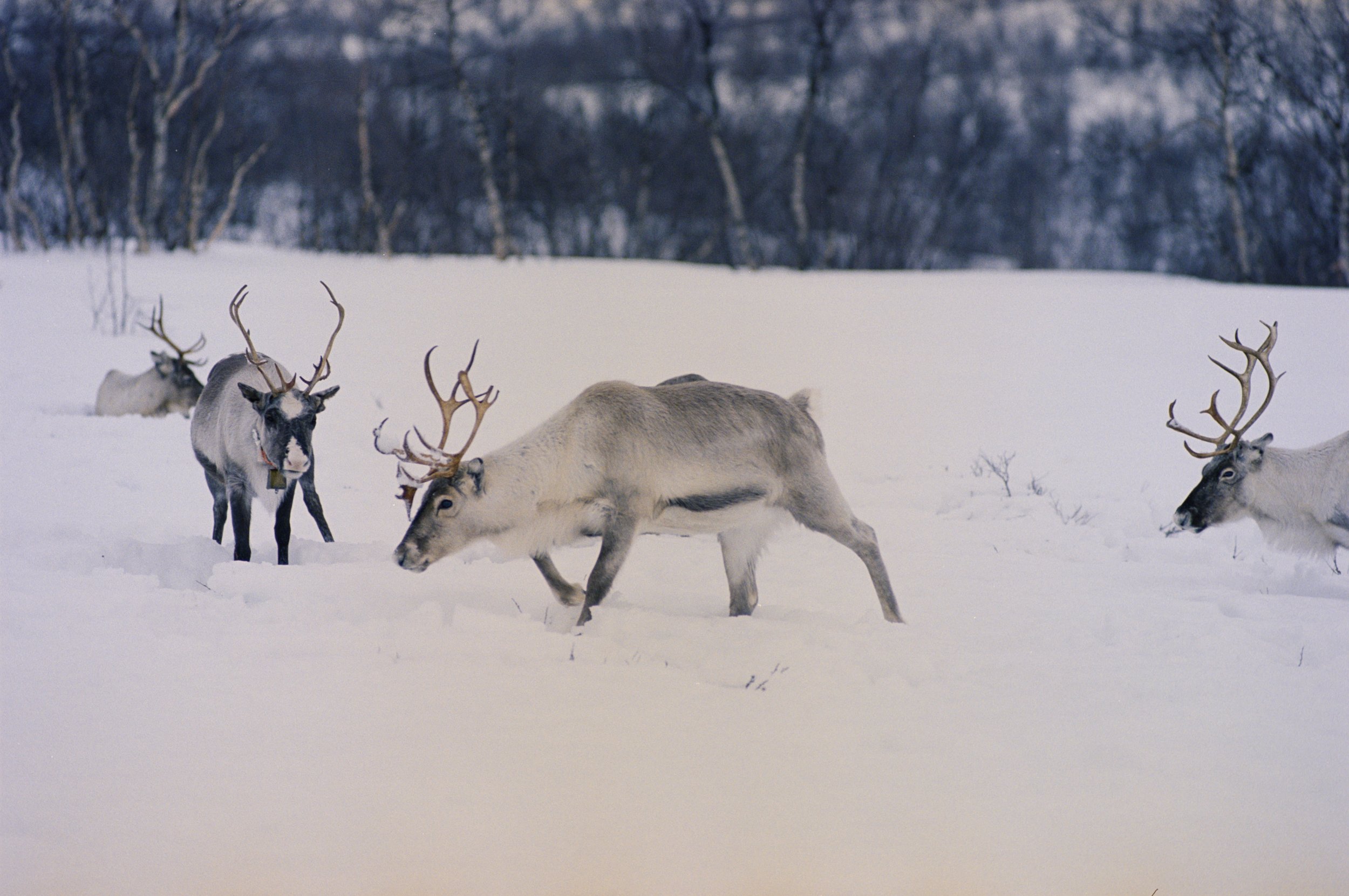OUR WAY OF THINKING
While many Indigenous Peoples of the Arctic had nomadic or semi-nomadic lifestyles, and while the newcomers to the Arctic were sedentary from the outset, reindeer herders are still following our reindeer on their migrations, like our ancestors ever used to. And so reindeer herding is not just a business, a livelihood or a way of life: Reindeer herding represents a distinct civilization, that is, an original nomadic civilization of the Arctic.
As Nomadic Indigenous Peoples, our way of life and worldviews are based on a more fundamental understanding of what today is called ´sustainability´. This wisdom of our ancestors is engraved in our 10 000 years of culinary traditions, our traditional food systems, and our indigenous knowledge. As we say: ´…Take only what you need, utilize everything that you take, and share what you have been given´.
At the core of our Arctic Indigenous cultures are traditions, practices and customs that truly appreciate the reindeer, the animals, the fish, the plants, the earth, the water, the snow, the wind, the fire - yes nature itself, always reminding our peoples that we are part of a holistic existence. Our economies was always circular, where waste has been taboo. Our way of life was always sustainable - to the bone.
OUR UNDERSTANING OF NATURE
Reindeer herding peoples have always known that man cannot control nature. Instead, we must try to come to terms with it, to live with it - not only to survive but to thrive with change. There is no word for ´stability´ in the indigenous northern Sámi language. And yet, humanity is increasingly acting as if we actually could control nature, a line of thinking that has certain consequences.
As our Sámi reindeer herders teach our children, at the beginning of time our people made an understanding with the reindeer: We were to take care of each other, always, in a sacred agreement ´…that cannot be broken´. That is how the story ends, and it says nothing further. But what does it really mean that this treaty cannot be breached? Our Evenki reindeer herders of eastern Siberia say ´…As long as we have reindeer, we have a culture´. In other words, if we do not fulfil our end of the agreement with the reindeer, our peoples will seize to exist. This can also be seen as a story about humanity´s fundamental relationship with nature. How well have we all kept this agreement? And what will be the consequence of breaking it?
We believe in the wisdom and deep knowledge handed down to us by our ancestors, who have lived on our ancestral homelands since time immemorial. We believe that the global food system is broken, and that we need to fix it. And we believe, as Einstein did, that we cannot escape nor solve the serious problems we have created with the same line of thinking we had when we created them.
We want to empower our own Indigenous Youth to handle their own destinies in an Arctic that is rapidly changing. We can achieve this by:
Using our own knowledge and resources
to build our own economies
on our own terms


